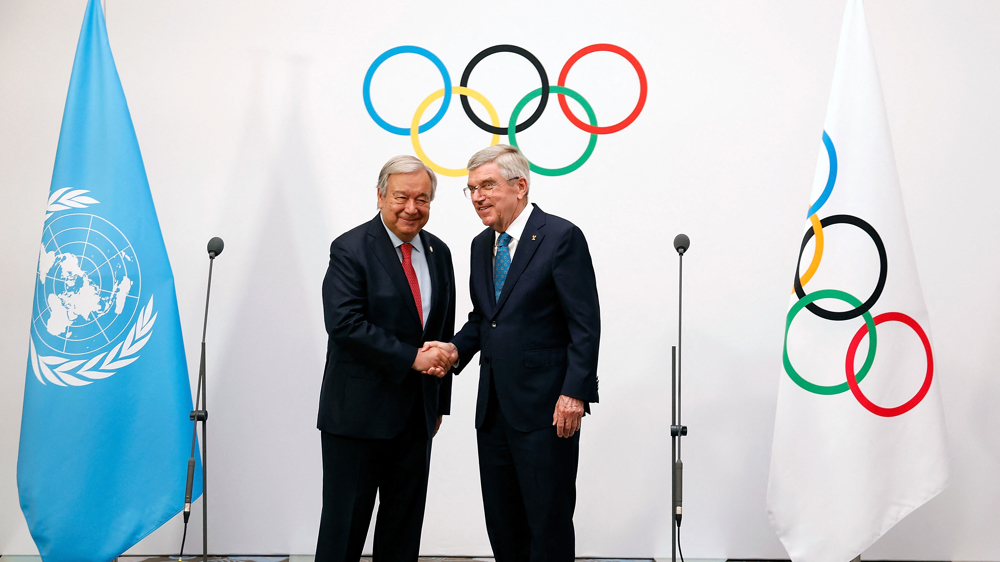Macron: EU's security must no longer depend on US
French President Emmanuel Macron says he will announce new proposals for the European Union to boost its security, calling on the 28-member bloc to stop relying on the United States to protect its sovereignty.
“Europe can no longer rely on the United States for its security. It’s up to us to meet our responsibilities and guarantee our security, and therefore European sovereignty,” Macron said during a speech to French ambassadors in Paris on Monday.
The French president said his proposals would be unveiled "in the coming months,” and that negotiations on defense cooperation should included all European countries, including Russia, but he did not elaborate further.
"Divisions between north and south over economics, between east and west on migration, too often fracture our European Union," Macron said, calling for a "humanist" approach to the changes brought by globalization.
"We need to take new initiatives, build new alliances," he stressed. "France wants a Europe which protects, even as extremism has grown stronger and nationalism has awoken.”
Since his election in May 2017, the 40-year-old French president has called for a more integrated EU, with a common European defense budget and security doctrine.
Germany has also called for boosted military cooperation between EU members.
Writing in the Handelsblatt newspaper last week, German Foreign Minister Heiko Maas called for Europe to "take an equal share of the responsibility," and "form a counterweight" to Washington as Europe-US relations cool.
France and Germany have both thrown their weight behind the idea of a joint European response force and have announced plans to develop a fighter jet together.
Relations between the EU and the US hit a deadlock following US President Donald Trump’s criticism of NATO and his distancing from the military alliance.
Trump says NATO member states have failed to increase military spending and that the US has to contribute too great a share of funds for the coalition.
Frustrated by what he calls the lack of "burden-sharing," Trump has also threatened to leave the alliance if other members fail to step up contributions.
In 2014, NATO countries agreed to meet the current target of two percent of their GDP over the next decade. The alliance has estimated that only 15 members, or just over half, will be able to hit the benchmark by then.
Hamas: Death of leader in Israeli jail amounts to murder
EU sends €1.5 billion to Ukraine from frozen Russian assets
VIDEO | Millions of Yemenis rally for Gaza, call for more anti-Israel operations
UN chief calls for Olympic truce as games begin in Paris
Paris Olympics begin as sports world reeling from loss of 400 Palestinian athletes in Gaza war
Iran warns ‘sworn enemies’, says sidekicks of US, Israel ‘displaced’ with bloody hands
New British govt. bends, drops plan to challenge ICC over Netanyahu arrest warrant
Tehran: Israel anti-Iran claim at Olympics aims to divert world attention from Gaza genocide












 This makes it easy to access the Press TV website
This makes it easy to access the Press TV website